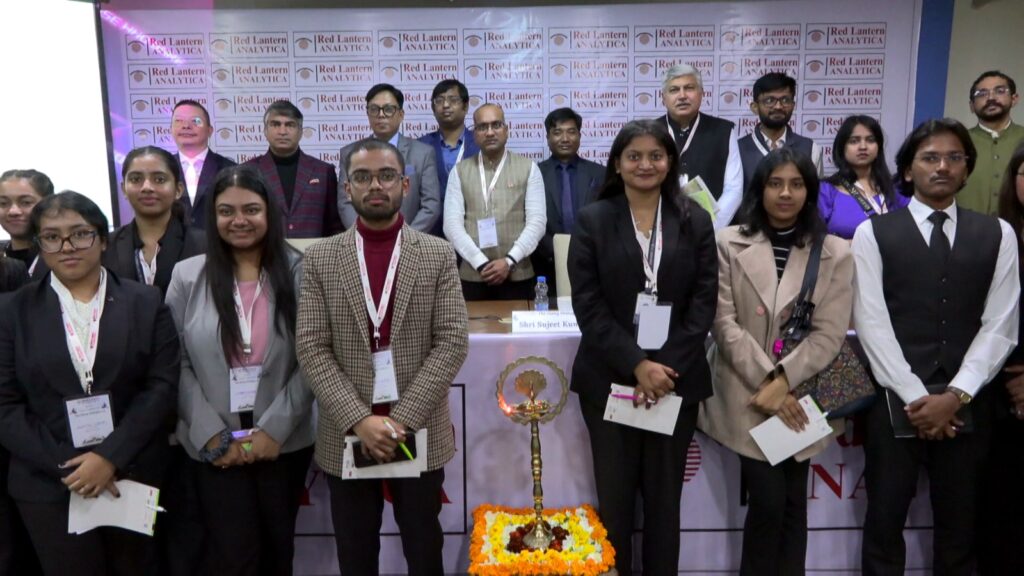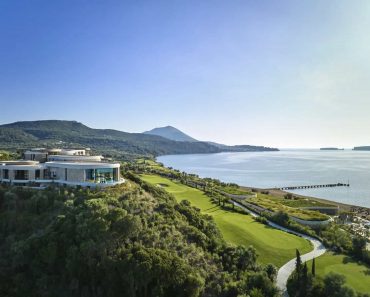Red Lantern Analytica held the Siang Dialogue 2.0 at the Foreign Correspondents’ Club – South Asia on February 8-9, bringing together policymakers, thought leaders, and academics, including Greek City Times’ Paul Antonopoulos, to discuss pressing global challenges.
On the first day of the Siang Dialogue 2.0, Rajya Sabha MP Sujeet Kumar highlighted India’s growing soft power and its active diplomatic initiatives.
Abdulhakim Idris, Executive Director of the Centre for Uyghur Studies, focused on the human rights crisis in Xinjiang, while Aadil Brar, a journalist based in Taiwan, discussed India’s border challenges, particularly China’s military presence along the Line of Actual Control (LAC).

The first plenary session, “Navigating the Indo-Pacific: Strategic Maritime Security Dynamics,” featured Roger Chi Liu from Sun Yat-sen University, who emphasized collaboration between India and Taiwan in marine research and disaster management.
Other speakers, included Jaydev Ranade, President of the Centre for China Analysis and Strategy, analyzed China’s foreign policy under Chinese President Xi Jinping, while NC Bipindra, Editor of Defence Capital, explored India’s countermeasures to China, such as cyber defense and bypassing the “Great Firewall.”
The second plenary session, “Shaping the Future: India’s Role in a Transforming Global Order,” saw discussions on India’s economic ties with Southeast Asia, territorial disputes with China, and the growing influence of China, Pakistan, and Bangladesh in the region.

Major Amit Bansal analyzed India’s strategic role as a net security provider in the Indo-Pacific, and Lt General Rakesh Sharma discussed the evolving nature of warfare, including information and space warfare.
On the second day, discussions centered on building resilient economies and mitigating cyber threats. Paul Antonopoulos, Editor of Greek City Times, proposed the India-Middle East-Europe Economic Corridor (IMEC) as an alternative to China’s Belt and Road Initiative.
“The successful rollout of IMEC would become a crowning jewel between Greece and India, which is why both countries pursue it with particular vigour,” he said.
It was also pointed out that the IMEC route is expected to reduce sea freight time from India to Europe by 40%, whilst for Greece, it is expected to contribute to creating 100,000 new jobs, a 15% increase in maritime trade, and attracting foreign business.
“By India acquiring a port in Greece, Greece will not only diversify supply chains and end its reliance on China, but India will also have a trusted partner to bring its products to Europe,” Antonopoulos continued.
“India’s Adani Group already operates two hubs on the IMEC route: Mundra Port in India and Haifa Port in Israel. Thus, the next step to Europe via Israel can only naturally be Greece,” he added.
See the video:
In a session on cyber security, experts like Jayanta Kalita and Namrata Hasija focused on China’s use of AI and disinformation to shape global narratives.
The event concluded with a valedictory session where Arunachal Pradesh MLA Shree Ninong Ering, emphasized the need to counter Chinese authoritarianism and build resilience to global challenges.
READ MORE: Greece and Cyprus block lifting of EU sanctions on Syria.







